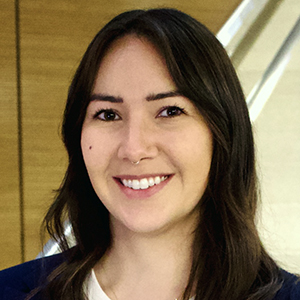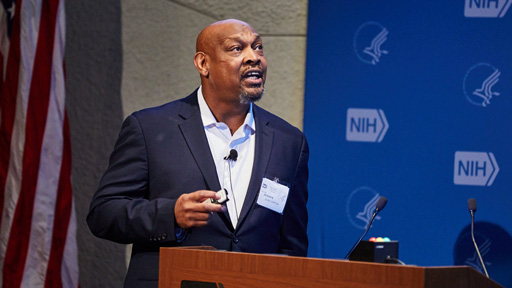Vence Bonham Bibliography on PubMed
Bonham V.L. Race and ethnicity disparities in pain treatment. Journal of Law, Medicine and Ethics, 29: 52-68. 2001. [PubMed]
Nerenz D., Bonham V., et al. Eliminating racial/ethnic disparities in health care: Can health plans generate reports? Health Affairs,21(3):259-263. 2002. [PubMed]
Bonham V., Sellers S., Neighbors H.W. John Henryism, and self reported physical health among high SES African-American men. American Journal of Public Health, (5):737-8. 2004. [PubMed]
Bonham V., Warshauer Baker E., Collins F.C. Race and ethnicity in the genomic era: a complexity of the constructs. Am Psychol, 60:9-15. 2005. [PubMed]
Race, Ethnicity, and Genetics Working Group. The Use of Racial, Ethnic, and Ancestral Categories in Human Genetics Research. The American Journal of Human Genetics, 77(4):519-32. 2005. [Full Text]
Todd K.H., Green C., Bonham V.L. Jr., Haywood C. Jr., Ivy E. Sickle cell disease related pain: crisis and conflict. Journal of Pain, 7(7):453-458. 2006. [PubMed]
Phillips EM, Odunlami AO, Bonham VL, Mixed Race: Understanding Difference in the Genome Era. Social Forces, 86(2):795-820. 2007. [PubMed]
Bonham VL, Ramos EM, Unraveling the relative contributions to health differences. CMAJ, 179(7):629-630. 2008. [PubMed]
Bonham VL, Knerr S, Social and Ethical Implications of Genomics, Race, Ethnicity, and Health Inequities. Seminars in Oncology Nursing, 24:254-261. 2008. [PubMed]
Bonham VL, Seller SL, Gallagher TH, Price EG, Frank D, Odunlami AO, Cooper LA, Physicians' attitudes towards race, genetics and clinical medicine. Genetics in Medicine, 11(4):279-86. 2009. [PubMed]
Bonham VL, Citrin T, Modell SM, Franklin TH, Warshauer-Baker E, Fleck LM, Community Based Dialogue: Engaging Communities of Color in the United States' Genetics Policy Conversation. Journal of Health Politics, Policy and Law, 34(3):325-59. 2009. [PubMed]
Bonham VL, Knerr S, Feero WG, Stevens N, Jenkins JF, McBride CM. Patient physical characteristics and primary care physician decision making in preconception genetic screening. Public Health Genomics, 13(6):336-44. 2010. [PubMed]
Frank D, Gallagher TH, Sellers SL, Cooper LA, Price EG, Odunlami AO, Bonham VL. Primary care physicians' attitudes regarding race-based therapies. J Gen Intern Med, 25(5):384-9. 2010. [PubMed]
Knerr S, Ramos E, Nowinski J, Dixon K, Bonham VL. Human difference in the genomic era: Facilitating a socially responsible dialogue. BMC Med Genomics, 3:20. 2010. [PubMed]
Bonham VL, Dover GJ, Brody LC. Screening student athletes for sickle cell trait--a social and clinical experiment. N Engl J Med, 363(11):997-9. 2010. [PubMed]
Knerr S, Wayman D, Bonham VL. Inclusion of racial and ethnic minorities in genetic research: advance the spirit by changing the rules? J Law Med Ethics, 39:502-512. 2011. [PubMed]
Snipes SA, Sellers SL, Tafawa AO, Cooper LA, Fields JC, Bonham VL. Is race medically relevant? A qualitative study of physicians' attitudes about the role of race in treatment decision-making. BMC Health Serv Res, 11:183. 2011. [PubMed]
Goldsmith JC, Bonham VL, Joiner CH, Kato GJ, Noonan AS, Steinberg MH. Framing the research agenda for sickle cell trait: building on the current understanding of clinical events and their potential implications. Am J Hematol, 87(3):340-346. 2012. [PubMed]
Calzone KA, Jenkins J, Culp S, Bonham VL Jr, Badzek L. National nursing workforce survey of nursing attitudes, knowledge and practice in genomics. Per Med, 1:10. 2013. [PubMed]
Hurle B, Citrin T, Jenkins JF, Kaphingst KA, Lamb N, Roseman JE, Bonham VL. What does it mean to be genomically literate: National Human Genome Research Institute meeting report. Genet Med, 15:658-663. 2013. [PubMed]
Cunningham BA, Bonham VL, Sellers SL, Yeh HC, Cooper LA. Physicians' anxiety due to uncertainty and use of race in medical decision making. Medical Care, 52:783-33. 2014. [PubMed]
Bonham VL, Sellers SL, Woolford S. Physicians' knowledge, use, and beliefs about race and genetic variation: New measures and new insight. BMC Health Serv Res, 14:456. 2014. [PubMed]
Bonham VL, Green ED, Pérez-Stable EJ. Examining How Race, Ethnicity, andAncestry Data Are Used in Biomedical Research. JAMA. 320(15):1533-1534, 2018. [PubMed]
Naik RP, Smith-Whitley K, Hassell KL, Umeh NI, de Montalembert M, Sahota P, Haywood C Jr, Jenkins J, Lloyd-Puryear MA, Joiner CH, Bonham VL, Kato GJ. Clinical Outcomes Associated with Sickle Cell Trait: A Systematic Review. Ann Intern Med. 169(9):619-627. 2018. [PubMed]
Persaud A, Desine SA, Blizinsky K, Bonham VL. A CRISPR Focus on Attitudes and Beliefs Towards Somatic Genome Editing from Stakeholders Within the Sickle Cell Disease Community. Genetics in Medicine. doi: 10.1038/s41436-018-0409-6. Epub head of print. 2018. [PubMed]
Selected Book Chapters
Bonham VL, Haywood C, Gamble VN. Sickle cell disease: the past, present and future social and ethical dilemmas. In: The Renaissance of Sickle Cell Disease in the Human Genome Era. United Kingdom: Imperial College Press, p. 311-321. 2007.








